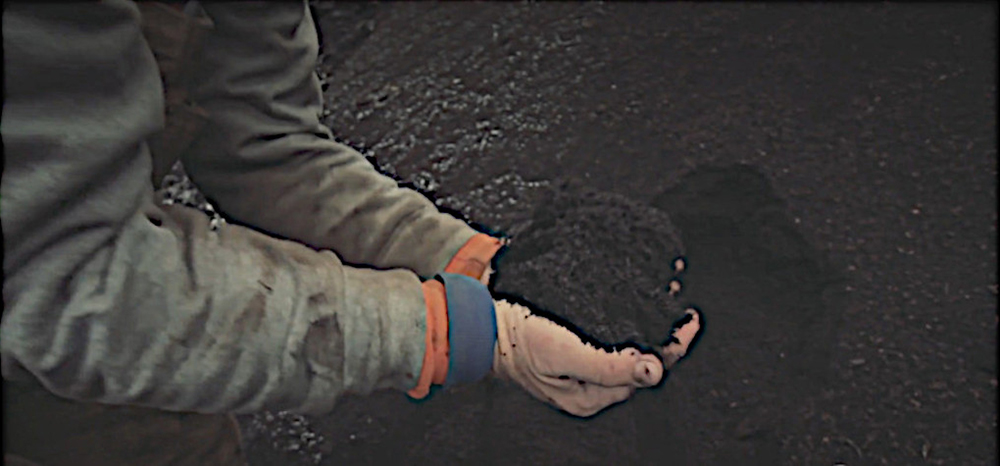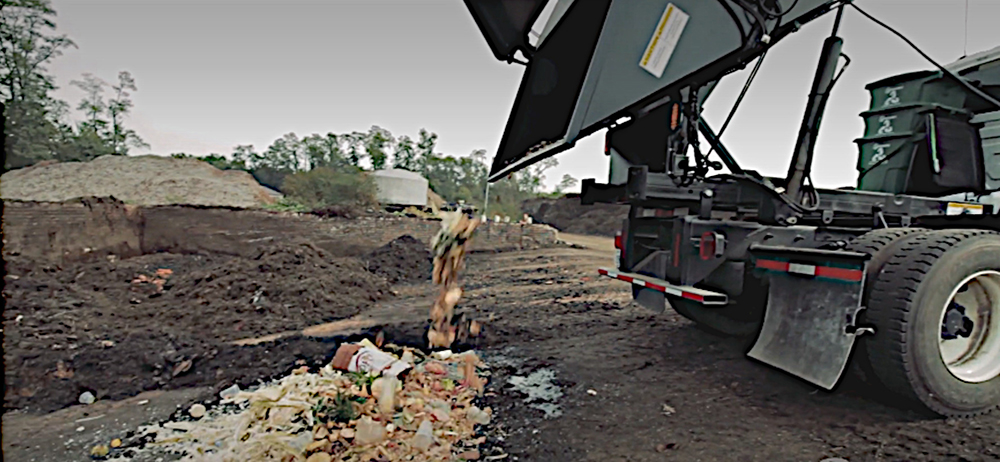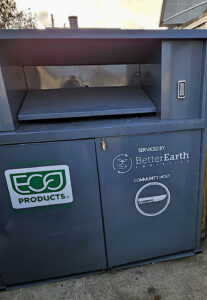
Robust, nutrient-rich soil can be salvaged through community composting, which enriches the well-being of our whole planet.
Many feel helpless about climate change since carbon dioxide releases by fossil fuels are mostly beyond our direct control. But another huge contributor to the crisis is methane, which is more than 28 times as powerful as carbon dioxide at trapping heat in the atmosphere.
That’s according to the United States Environmental Protection Agency, which adds that over the last 200 years, the concentration of methane in the atmosphere has more than doubled, “largely due to human-related activities.”
However, there’s a way to address the common human activities of discarding food, which results in dramatic methane emissions, especially from landfills — composting; and the Peoria area has a convenient, simple way to make a big difference: community composting.
Except for home gardeners, food scraps might mean doggy bags, leftovers or trash. But food scraps and other material are being transformed into reusable resources that help lawns, farms and land all while eliminating unwanted methane releases.
“Divesting waste from the [City/County] landfill, extending the landfill’s life, and replenishing soil are the goals,” said Rebecca Cottrell, Peoria County’s Sustainability Coordinator.
When buried in landfills, organic waste decomposes and releases methane. Even when incinerated, moist organic waste requires intense energy to keep the burner temps high and can release toxins into the air. Besides releasing methane, degrading food can leak, which pollutes water and soil.
That’s “problematic and not sustainable,” said Eric Goldstein, a senior attorney at the Natural Resources Defense Council.
Worldwide, 1.4 billion tons of food are landfilled annually. In the United States, about a third of food produced in the country isn’t consumed, and much ends up in landfills, where almost one-quarter of the contents are food waste. In fact, 58% of all methane emissions from landfills are from food waste, the EPA reported in October.
Healthy soil, food, people
“Composting feels relatively simple,” says Stephanie Katsaros, president of the environmental stewardship group Bright Beat, which she founded in 2010. “It’s not hard to separate your food scraps from waste, and if you have access to the infrastructure for it to be dropped off or picked up and processed, the benefits are clear: healthy soil, healthy food, healthy people and reducing greenhouse gas emissions by keeping food out of landfills to reduce methane emissions.”
Plus, after organic material is baked, dehydrated, ground into powder and changed to mulch, or even animal feed supplements rich with protein and fiber, the finished product is odorless and loosens tight soils, adds organic matter to soil and has no harsh chemicals.
In greater Peoria, people can subscribe to the community composting service for a $24.99 setup fee purchased at Sous Chef in Peoria, Washington Wellness in Washington, or at the Ecology Action Center in Bloomington. That gets them key-card to access collection kiosks at various locations: outside Sous Chef, 1311 SW Adams; in the parking lot behind the Nook off Prospect Road and Seiberling Avenue in Peoria Heights; in the parking lot of the Connect Center, 1750 Washington Rd. in Washington, and at Normandy village, 1100 N. Beech St. in Normal.
The program is outsourced to private companies, so Peoria County doesn’t underwrite its costs beyond minimal investment, Cottrell says; “just for the kiosks and consumer supplies, and it could save taxpayer money in landfill life and costs.”
There’s no proposal for pick-up composting now, but the County is looking into expanding partners — especially throughout the county.
“We need interested municipalities and some private business willing to participate, Cottrell says. “Since 2018, it’s worked pretty great. It’s a nice resource and we’ve gotten good responses.”
Easy answer
Community composting isn’t new. South Korea banned dumping food scraps into landfills in 2005, keeping about 90% of food waste out of dumps and incinerators, and hundreds of local governments there have processing facilities.
California requires local governments to provide organic waste collection, and New York City next year will mandate separating yard waste and food scraps for curbside collection.
In the last decade, many areas — large and small — started voluntary composting initiatives. Nationally, nine states now have some level of mandatory composting, and some cities have voluntary curbside collections. Others, including Peoria and Chicago, have drop-off options.
Chicago’s new $6 million community composting program has 15 drop-off locations for fruit and vegetable scraps, cooked food, meat, fish, bones, dairy, eggshells, bread, grains, coffee grounds and tea leaves.
“Diverting food scraps for composting is one of the easiest and most impactful ways for individuals and cities to address the climate crisis,” said Chicago Mayor Brandon Johnson. “We can reduce harmful greenhouse-gas emissions, return organic materials to the Earth, and, most importantly, create healthier communities.”
More can be done, Katsaros says.
“Lawmakers are not moving fast enough to address our present and growing climate crisis,” she says. “The climate impact of organic waste in landfills is an urgent matter. There are other environmental issues and solutions that need to be prioritized, but wasting resources is a widespread issue that also needs attention.
“We can no longer allow ourselves to ignore the fact that wasting resources is an irresponsible act of a privileged society.”
Education and awareness
On Oct. 31, dozens of local leaders in an open letter appealed to the U.S. Environmental Protection Agency to help phase out food waste from landfills by 2040. “Local governments across the country are already taking steps to keep methane-generating organic waste out of landfills. We have made systems changes to reduce food waste and ensure surplus foods are recovered to feed those in need. Food scraps that remain are diverted to community or curbside composting programs, creating valuable soil products,” says the letter, signed by officials from Phoenix and St. Paul, small towns in Massachusetts and North Carolina, and Illinois’ Oak Park and Highland Park and 50 others.
“Federal policy is essential to scale the methane prevention and mitigation efforts in a few leading localities to a nationwide, equitable approach. We need fast action from the EPA.”
Meanwhile, on a 20-acre spread on Cameron Lane, in the shadow of the Peoria International Airport, Paul Rosenbohm operates Better Earth Compost, a business he started in 1998 — “long before it became popular,” he says. “It was a learning process and building a market from scratch, taking an unwanted product and making something better for the Earth — the same thing God does, only we do it in three months and He takes years.”
Rosenbohm receives material from a variety of sources, from restaurants and food-processing plants to the community composting kiosks collected by Better Earth Logistics, a separate firm.
After several different processes depending on the needs of customers, Better Earth Compost delivers various blends throughout the state, to gardeners and farmers, general contractors and local sites such as the Riverfront Museum and Peoria Stadium.
Rosenbohm knows it enriches the soil, “There were fields here that years ago wouldn’t grow good weeds, and now it’s fertile, dark black prairie soil.”
A little education could encourage people to change from just tossing stuff into trash bags headed for landfills.
“Education is critical to growing awareness and changing mindsets and culture, in order for composting to become standard practice,” Katsaros says. “Community engagement around composting involves education and co-creating/collaborating on solutions — like composting at community gardens, or teaching children and families about composting through school cafeteria composting programs and associated curriculum.”
There’s an “opportunity for those leading efforts to advance composting and the use of finished compost to learn from past efforts to promote recycling and use of recycled content,” adds Katsaros, who’s also president of Chicago Sustainability Task Force and active with the Illinois Food Scrap & Composting Coalition and the Wasted Food Action Alliance. “Various Illinois organizations promote such practices, with free educational resources, such as the Illinois Food Scrap & Composting Coalition (https://illinoiscomposts.org/composting-at-home/) and University of Illinois Extension (https://extension.illinois.edu/keywords/composting).
“Education and policy may be necessary to motivate businesses and institutions to change,” says Katsaros, who says Peoria County is doing “great work.
“We cannot count on businesses to ‘do good’ if it doesn’t also make economic sense,” she continues. “Policy must be supported through education, and enforced, in order to achieve the desired outcome.
“Having participated on a grassroots level to get curbside recycling in Chicago, I believe in the value of advocating for curbside composting at a citizen/resident level,” she adds. “Advocating for policy change is something I think we all need to do. Local governing bodies can provide clear guidelines and (relatively easy) access, to maximize participation of individuals, businesses and institutions.”
Easy effort
Goldstein, with the Natural Resources Defense Council, hopes for modest momentum to start turning a dangerous nuisance into a positive product.
“When municipalities see that cities are in the lead on this, having successful programs, where the public is participating, and where some cost savings are actually possible, it’s likely that they too will hop on the bandwagon.”
Katsaros says participation is key — and possible.
“Not everyone is able to avoid driving a car, or able to buy an electric vehicle,” she says. “We can’t all afford to install solar panels on our roof. But we all have the ability to prevent waste — ‘pre-cycle’ — maximize reuse and recycling of all resources that align with our infrastructure … or try. That makes composting a personal way to address climate change.”
Rosenbohm agrees and simplifies his perspective: “I want to lend a hand to Mother Earth.”
Compostable criteria
Paul Rosenbohm’s company Better Earth Compost lists what it accepts and what it does not for:
Accepted materials: food scraps, compostable products, spoiled grains / grain products, grass, leaves and brush, firewood and logs.
Not accepted: treated or painted wood, plastics, rock, concrete, metal.
Also, Rosenbohm refers questions on residential food scrap services, compostable products, community compost kiosks, and commercial food scrap hauling to Better Earth Logistics to betterearthlogistics.com.
For more information, go to Peoria County’s websites Peoria County composting site, where a two-page Food Scrap Composting brochure is available.





1 comment for “Enrich our Earth: Community composting ‘great’ for the health of our soil, our food, our people — our planet”